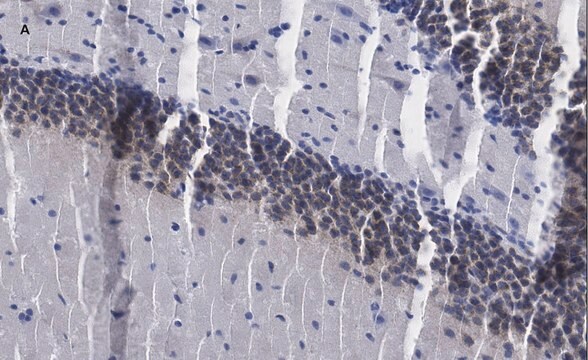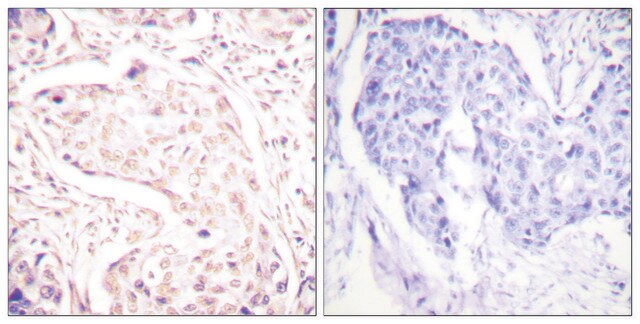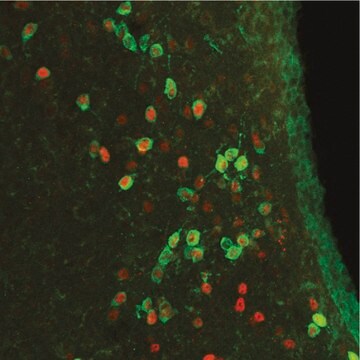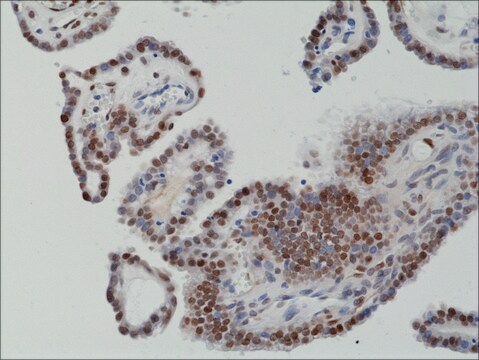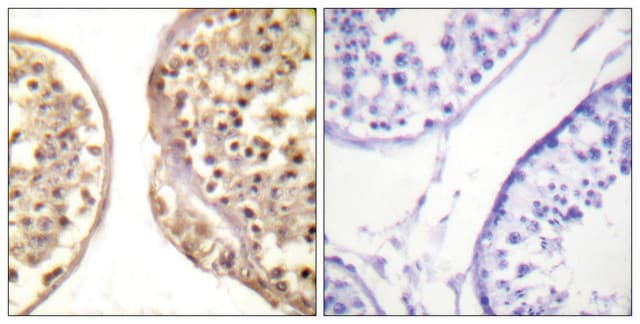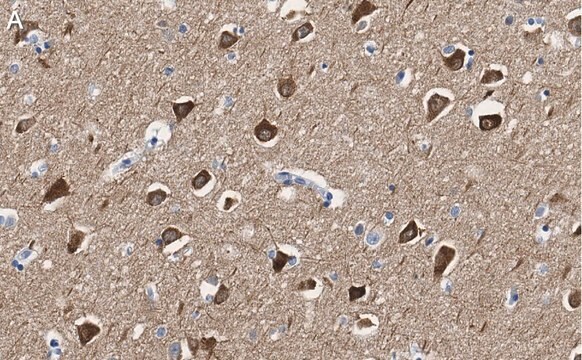ZRB1990
Anti-phospho-c-Fos (Ser32) Antibody, clone 2F15 ZooMAb® Rabbit Monoclonal

recombinant, expressed in HEK 293 cells
Sinónimos:
Proto-oncogene c-Fos;Cellular oncogene fos;G0/G1 switch regulatory protein 7
About This Item
Productos recomendados
biological source
rabbit
Quality Level
recombinant
expressed in HEK 293 cells
conjugate
unconjugated
antibody form
purified antibody
antibody product type
primary antibodies
clone
2F15, recombinant monoclonal
description
2F15 Clone
product line
ZooMAb® learn more
form
lyophilized
mol wt
calculated mol wt 40.7 kDa
purified by
using Protein A
species reactivity
human
species reactivity (predicted by homology)
feline, rat, mouse, monkey, bovine, canine, horse, porcine
packaging
antibody small pack of 25 μL
greener alternative product characteristics
Waste Prevention
Designing Safer Chemicals
Design for Energy Efficiency
Learn more about the Principles of Green Chemistry.
enhanced validation
recombinant expression
Learn more about Antibody Enhanced Validation
sustainability
Greener Alternative Product
technique(s)
affinity binding assay: suitable
immunocytochemistry: suitable
western blot: suitable
isotype
IgG
epitope sequence
N-terminal
Protein ID accession no.
UniProt accession no.
greener alternative category
, Aligned
shipped in
ambient
storage temp.
2-8°C
target post-translational modification
phosphorylation (pSer32)
Gene Information
human ... FOS(2353)
General description
Specificity
Immunogen
Application
Evaluated by Western Blotting with a construct containing N-terminal MBP-tagged recombinant c-Fos protein fragment phosphorylated on serine 32.
Western Blotting Analysis (WB): A 1:20,000 dilution of this antibody detected a construct containing N-terminal MBP-tagged recombinant c-Fos protein fragment phosphorylated on serine 32, but did not react with non-phosphorylated c-Fos. (Phospho-c-Fos construct: Courtesy of Dr. Jesse Rinehart, Yale University, School of Medicine).
Immunocytochemistry Analysis: A 1:100 dilution from a representative lot detected Phospho-c-Fos-(Ser32) in HeLa cells serum starved then treated with or without 400 nM PMA for 4hrs.
Affinity Binding Assay: A representative lot of this antibody bound Phospho-cFos (Ser32) peptide with a KD of 8.7 x 10-8 in an affinity binding assay.
Note: Actual optimal working dilutions must be determined by end user as specimens, and experimental conditions may vary with the end user.
Target description
Physical form
Reconstitution
Storage and Stability
Legal Information
Disclaimer
¿No encuentra el producto adecuado?
Pruebe nuestro Herramienta de selección de productos.
Storage Class
11 - Combustible Solids
wgk_germany
WGK 1
flash_point_f
Not applicable
flash_point_c
Not applicable
Certificados de análisis (COA)
Busque Certificados de análisis (COA) introduciendo el número de lote del producto. Los números de lote se encuentran en la etiqueta del producto después de las palabras «Lot» o «Batch»
¿Ya tiene este producto?
Encuentre la documentación para los productos que ha comprado recientemente en la Biblioteca de documentos.
Nuestro equipo de científicos tiene experiencia en todas las áreas de investigación: Ciencias de la vida, Ciencia de los materiales, Síntesis química, Cromatografía, Analítica y muchas otras.
Póngase en contacto con el Servicio técnico